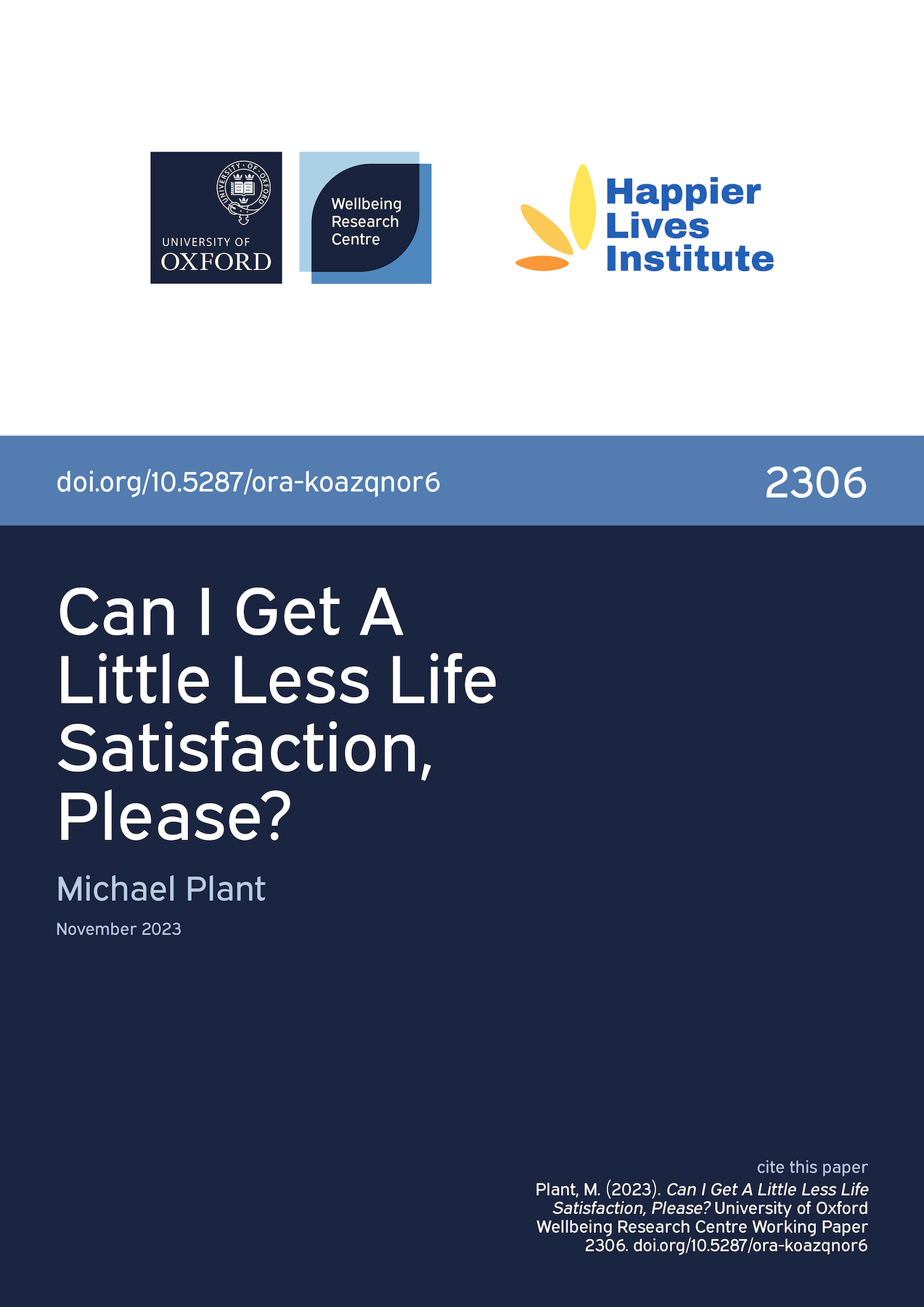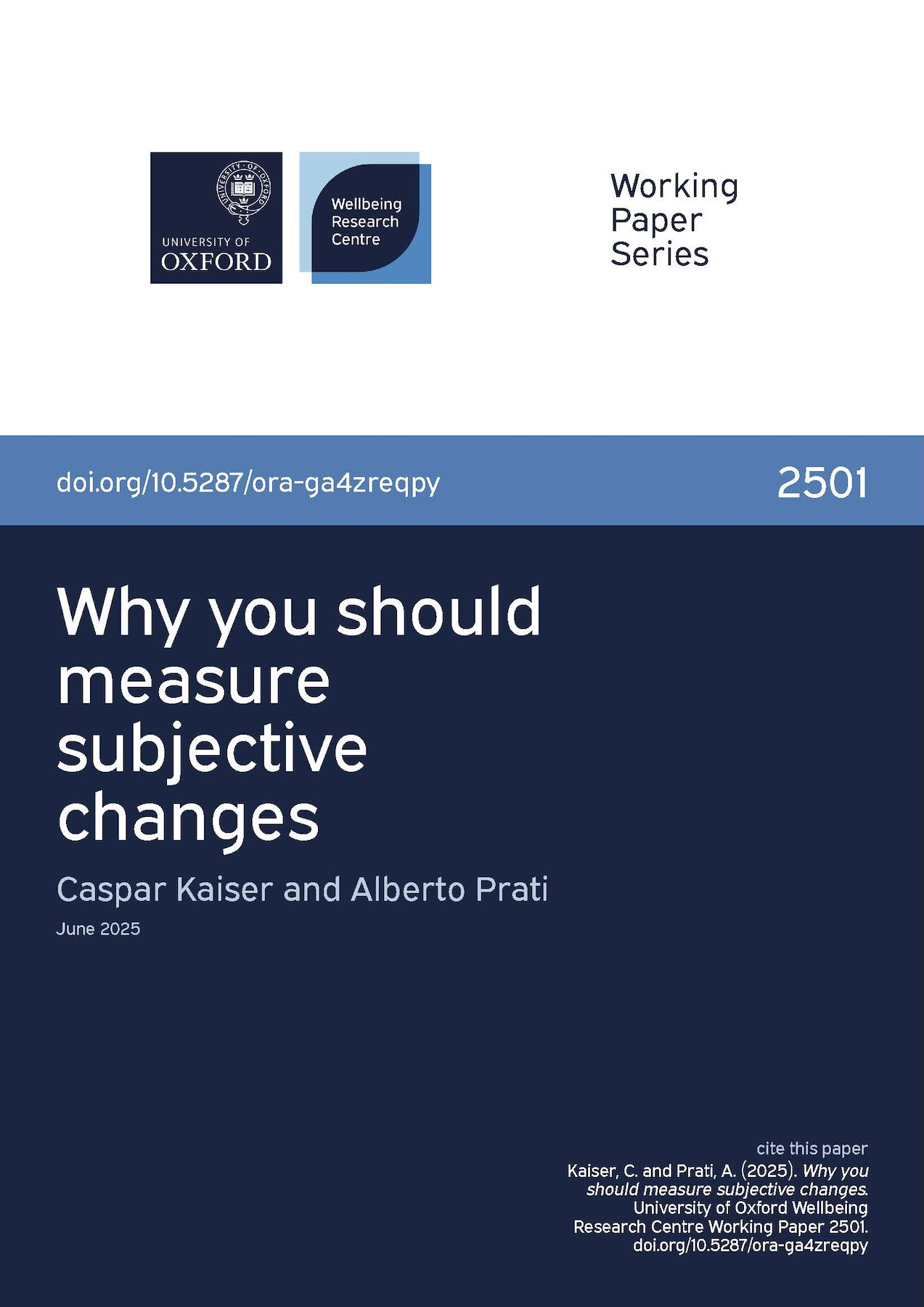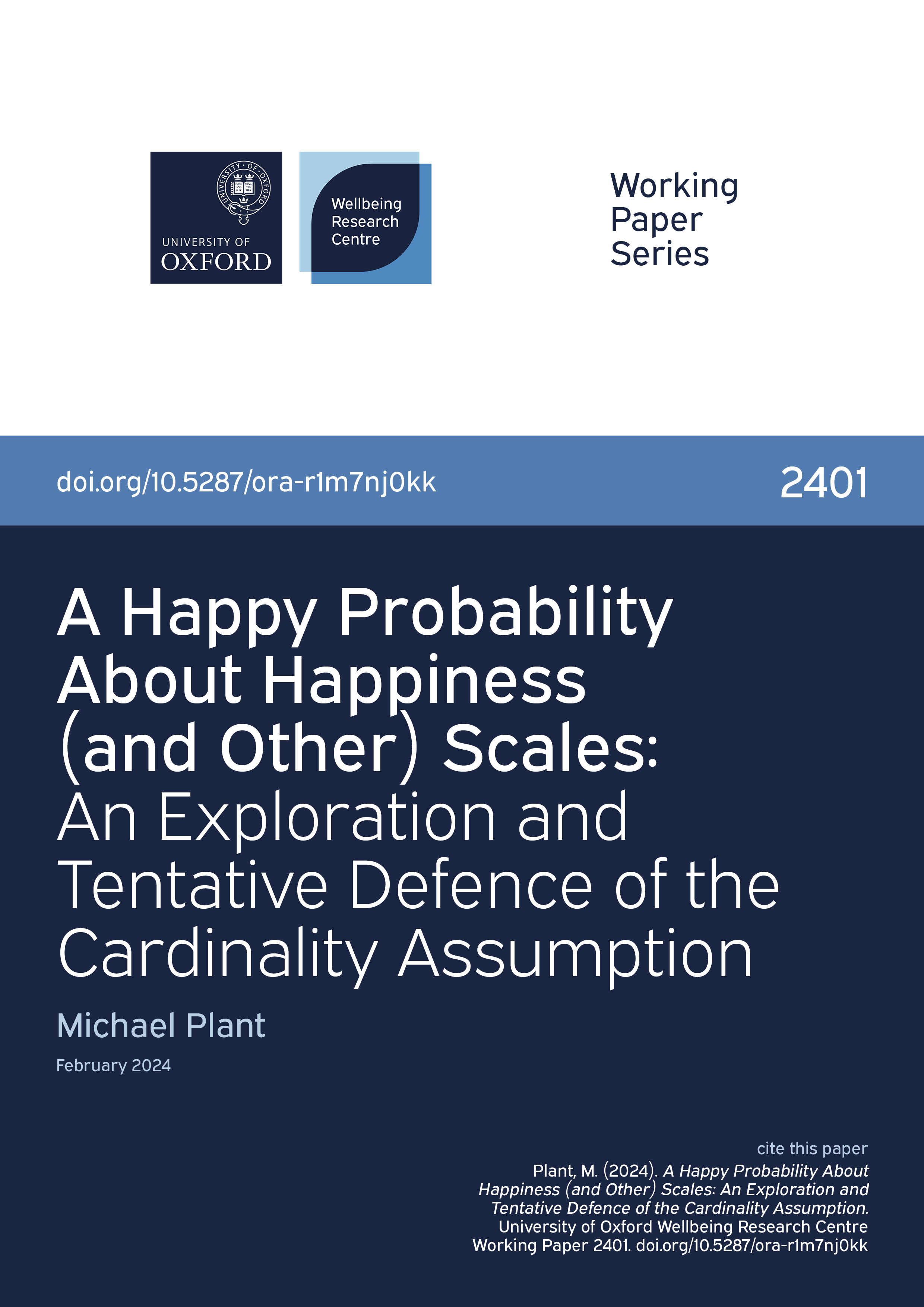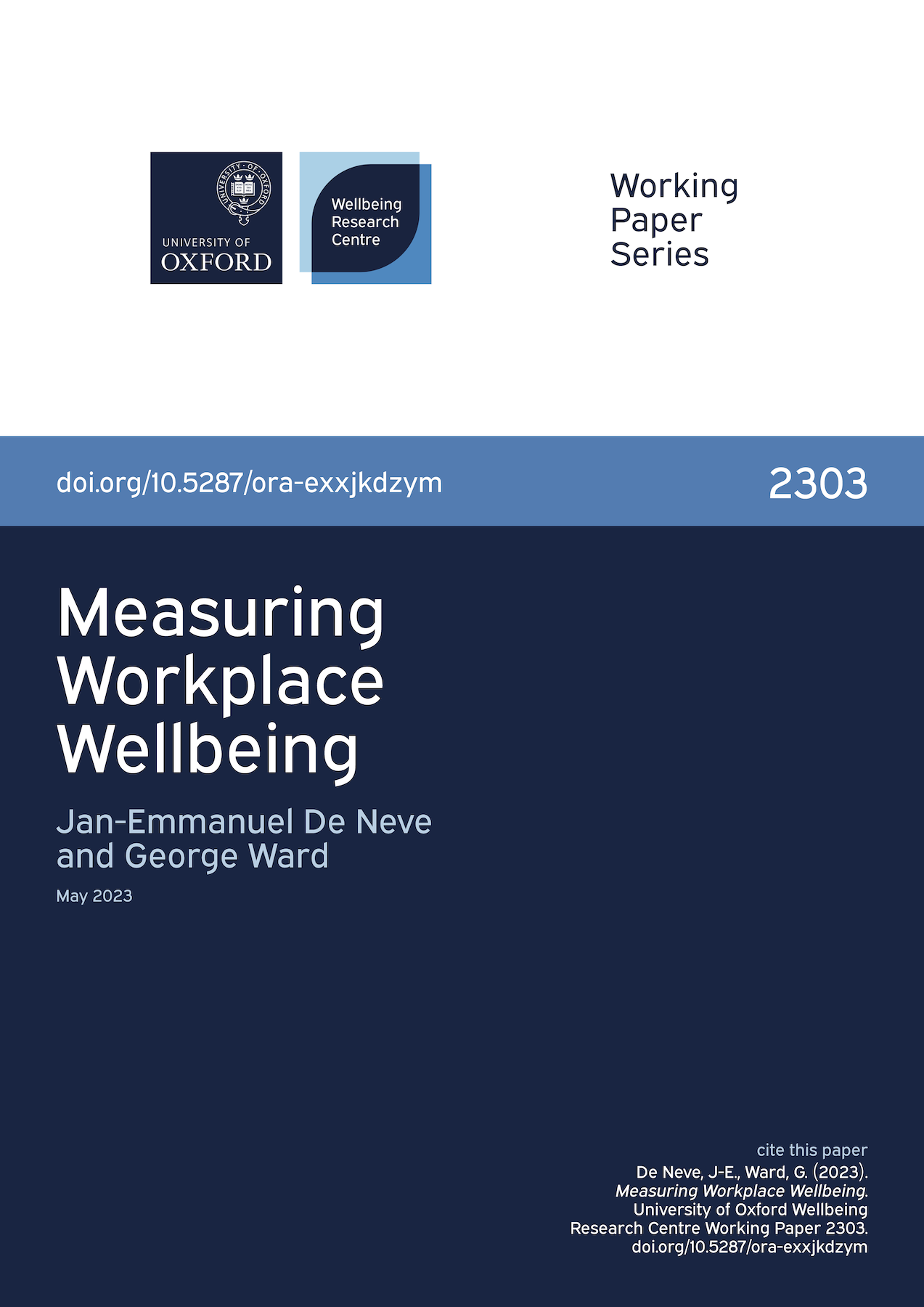
2306 | Can I Get A Little Less Life Satisfaction, Please?
Michael Plant
Since Parfit (1984), philosophers have standardly held there are three theories of wellbeing: hedonism, desire theories, and the objective list. Some have argued this classification omits a distinct, plausible theory of wellbeing based on life satisfaction. The life satisfaction theory (LST) is notably prominent outside philosophy, with a growing chorus advocating for self-reported life satisfaction to be a, or the, outcome measure for policymaking. In this paper, I investigate the nature and plausibility of LST. I argue that while happiness and life satisfaction are often conflated, LST is best understood as a type of desire theory and not as a distinct account of wellbeing. To evaluate LST, I initially consider two current objections and argue they are little threat. I then present two seriously troubling objections. One is whimsicality: LST implies subjects can determine how well or badly their lives are going for any reason and at any time. The other that it leaves us with too few subjects: it means that, for entities who cannot make whole-life evaluations, such as infants and many animals, nothing can go better or worse for them. I conclude (1) the life satisfaction theory is implausible (but do not argue for an alternative here) and (2) life satisfaction surveys are a useful, but non-ideal measure of wellbeing; we should remain open to, and explore the implications of, other metrics.


